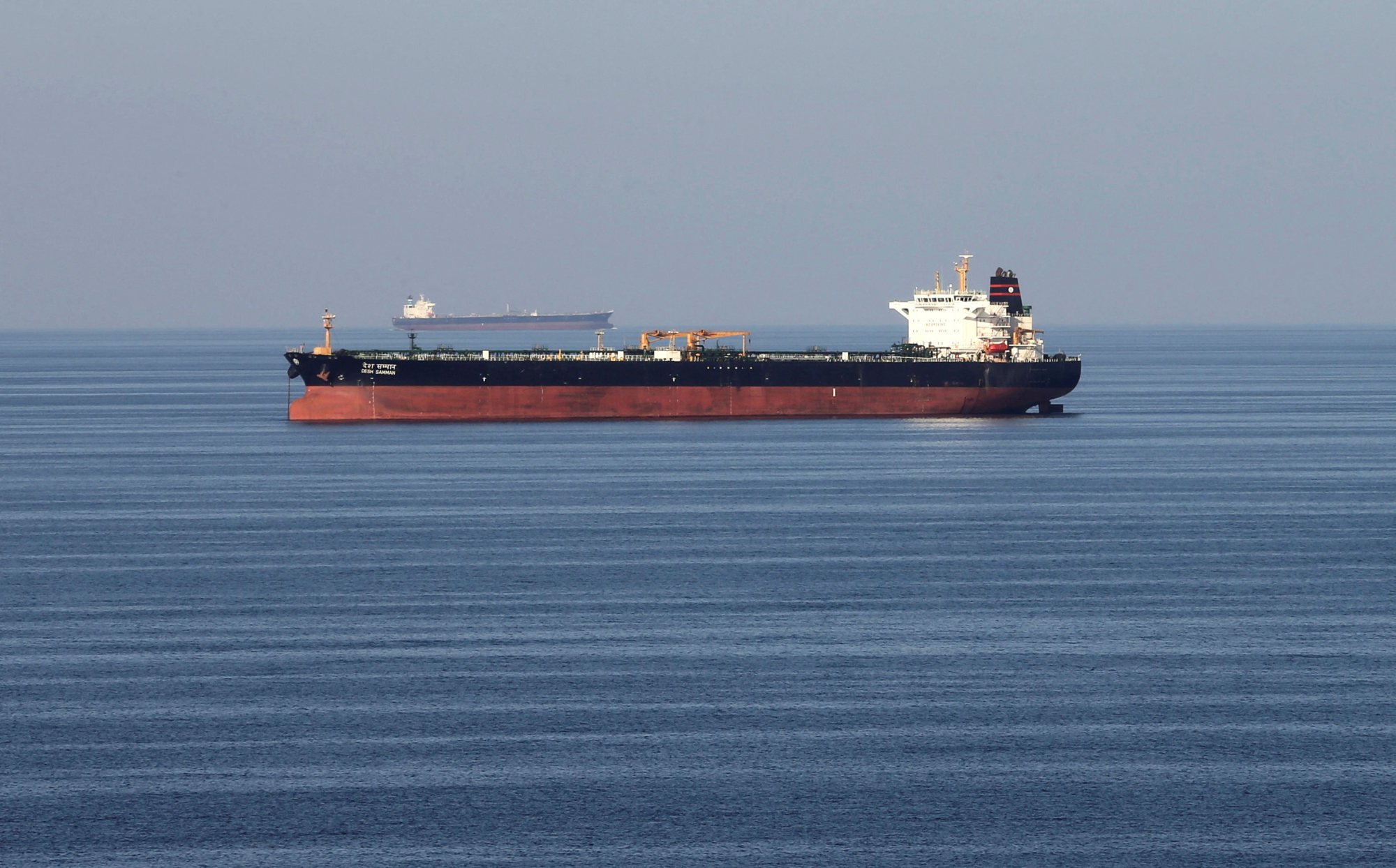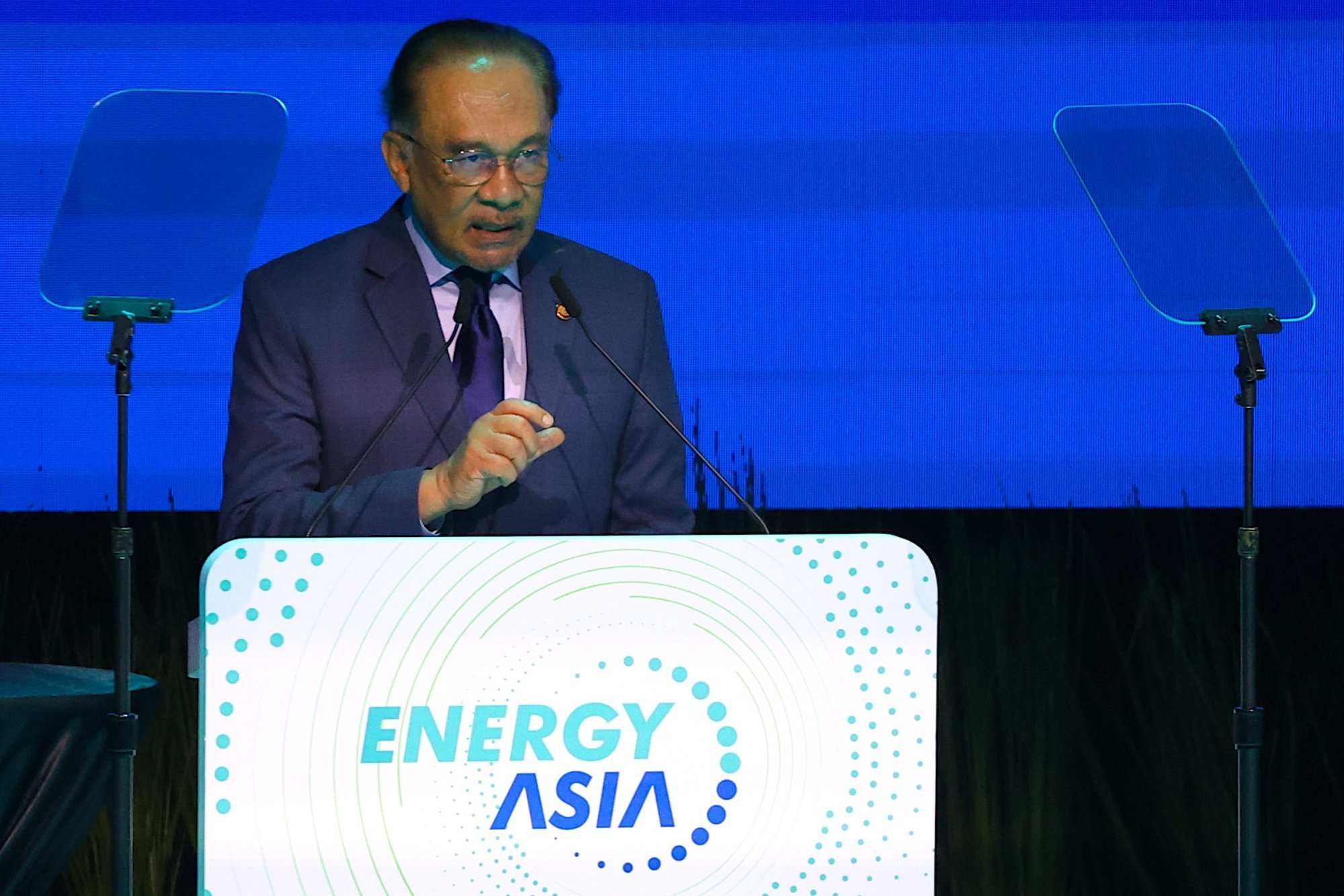Israel-Iran war adds to ‘polycrisis’ engulfing oil market, Petronas CEO warns
Tengku Muhammad Taufik urges region to diversify and scale up its energy portfolio, as oil prices surge amid geopolitical turmoil

War between Israel and Iran is adding to a “polycrisis” of threats to global energy security, the chief of Malaysian oil major Petronas has warned, as tariffs and geopolitical turmoil drive up prices.
Global oil prices have surged since Friday when Israel launched strikes inside Iran, which retaliated with missiles and drones and has threatened to close the Strait of Hormuz – through which a fifth of the world’s oil supply flows.
Malaysian state oil company Petronas has already reacted to the global economic gloom, slashing a tenth of its almost 50,000 workforce, saying the company will not exist in 10 years otherwise.
Speaking at a Kuala Lumpur conference on Monday, Petronas Group CEO Tengku Muhammad Taufik noted that the global oil price had seen the largest price surge since 2022 in anticipation of a supply shock from the Israel-Iran war.
“These seismic shifts of global conflicts, technological revelations and climate change [are] what Petronas has described as polycrisis,” Taufik said, adding that this was exacerbated by the projected population of the Asia-Pacific region that would rise to 5.2 billion in 2050.

The region must diversify and scale up its energy portfolio, he said, stressing that energy was no longer the exclusive domain of oil and gas firms.
“To power our economies, to fuel AI adoption across industries, simply to keep the lights on for our population and to safeguard the well-being of our communities, this region will represent 50 per cent of global energy demand until 2050,” he said.
More than 70 per cent of oil that flows through the Strait of Hormuz is bound for Asian markets, particularly China, India, Japan, South Korea and Singapore, according to the International Energy Agency.
US President Donald Trump’s tariffs have already caused congestion in Chinese ports, as well as Malaysia’s Port Klang and Singapore, with companies racing to ship their products before the end of the 90-day pause on July 9.
Prime Minister Anwar Ibrahim told the conference that the predictability, reliability and stability provided by the global trade and economic system had given way to uncertainties driven by a rising tide of geopolitical tensions, retaliatory tariffs and disrupted supply chains.
“This fragility is perhaps most evident in the energy and climate domain,” Anwar said. “Rather than fostering collaboration, we are witnessing polarising policy shifts driven by strategic competition, even as energy security remains out of reach for many.”

Malaysia, with a renewable energy sector valued at US$3.8 billion, is facing an uncertain future in the face of Trump’s steep tariffs.
The solar sector especially faces a gloomy period ahead, as the world’s third-largest producer of solar photovoltaic components – used in solar panels and a major supplier of polysilicon, critical to solar manufacturing – faces 24 per cent reciprocal tariffs. This is on top of existing tariffs of 9.13 per cent in October 2024 as part of Washington’s anti-subsidy countervailing effort against companies in Malaysia, Thailand, Vietnam and Cambodia.
Against this backdrop, Malaysia is likely to see drastically reduced demand as costs escalate for US importers and intensify pressure on the region’s solar industry.
The country is currently negotiating with Washington on the tariff rates.
Looking back at the Covid-19 pandemic, Petronas’ Taufik compared the current adversarial attitude to collaboration in 2020, when the world came together against a common crisis, producing vaccines and personal protective equipment “in record time”.
“Normalcy can be restored when nations work in tandem,” he said.